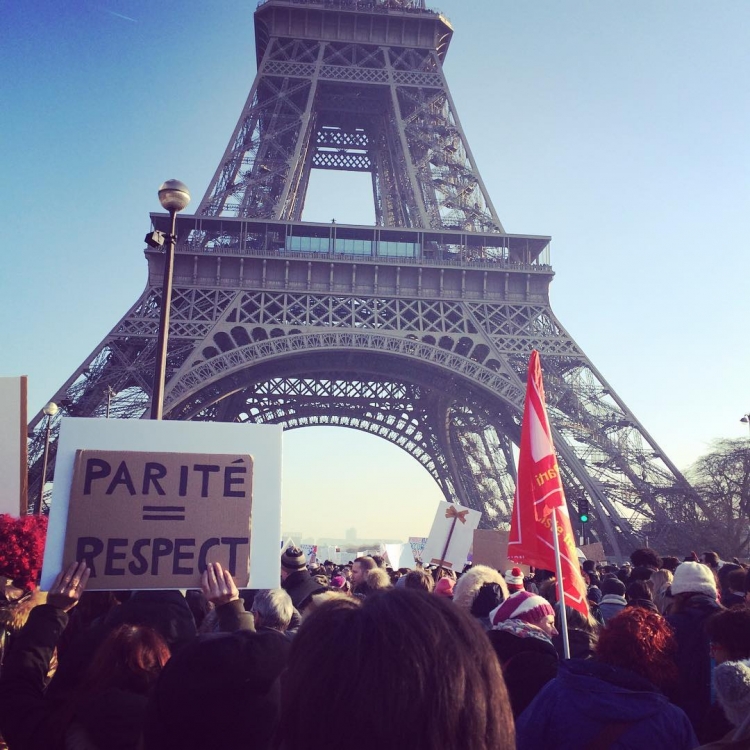Women's March: A Reflection

There are many people who think that the recent worldwide women’s march was only a protest against President Trump’s policies to moderate womens' rights. This isn’t true. It was one of the reasons, but not the only one. Even before his initiation as the new President of the United States of America, everyone was well aware of that fact that Trump isn’t much of a feminist. But somehow, he still had female supporters who voted for him and, now, act surprised that he turned out to be rather misogynistic. Everyone is aware of his rather off-color remarks, such as “grab her by the pu**u” and other equally (or more) disgusting comments that sexualize women and more or less encourage rape culture, while campaigning to “make America great again.” The women’s march was a demonstration for all minorities—Native Americans, LGBTQ*, African-Americans, Hispanics, Muslims—and even scientists. Electra Reihel, a Caucasian, American student who marched in the Paris event, said that she marched mostly to raise awareness of the issues, believing that by showing people there is still inequality between the sexes, we are making history. Electra also believes that every community is going to march, one after the other, except the people who have nothing to protest against in America—“old, white men.”
Image credit: Wikimedia/Melissa Brunet
However, not everyone shares Reihel's opinion. To march for women is to march for all women. If you marched for the rights of the upper middle-class white woman, exempting the black woman, the homosexual woman, the Muslim woman, the Hispanic woman, then you walked for miles, but in vain. You marched for no woman. Sophie Umazi, a Kenyan national living in the United States, expressed this concern as she explained why she boycotted the womens' march. “In America, I am black first, then I am a woman!” she said. She felt that some women were marching for the equality of the sexes (and against the newly elected President Donald Trump), but not for her—the black woman. She was concerned that even though she was marching for a good cause, she would be looked down upon as just an angry black woman. According to her, if she’d been in Nairobi for the Women's March, she would have joined their march, and she would have been respected for it.
Electra and Sophie have two things in common—they are both women and they are both affected by Trump’s America. However, they, too, have many differences. While one woman felt that her voice could be heard—that she was standing up for something she strongly believed in—the other felt that she had to be white for her voice to be heard and taken seriously. As Reihel said, soon all minorities will have a march of their own to fight for their own rights.








